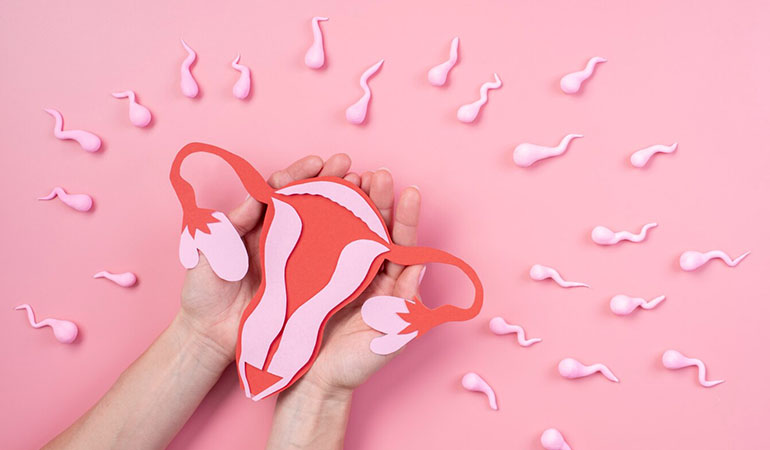


Aim of the course:
To qualify a professional infertility specialist with up to date knowledge and essential skills for the safe management of infertility related problems.
Needs Assessment
Reproductive Medicine and assisted reproductive techniques are expanding progressively and witnessing rapid changes and development in diagnostic tools, strategic approaches and optimum methods of treatment. There are very few opportunities for gynecologists, if any, to acquire the necessary updated knowledge and training in this very fine, widely needed, and fast growing subspecialty. The purpose of this training program is to arm gynecologists with the required evidence based knowledge, skills and ethical communication capabilities that must be gained by practitioners of reproductive medicine and assisted reproduction in order to practice independently and safely.
Intended learning outcomes (ILOs)
By the end of the course, delegates should be able to:
I. Knowledge and understanding
KI.1 Patient’s selection: the different indications of ART, required Investigations, and preparation, limitations and ethical and legal aspects of ART
KI.2 Ovarian stimulation: the scientific basis of follicular development and the role and control of gonadotrophins and the pharmacology of different agents used for ovarian stimulations.
KI.3 Stimulation protocols: 1) long GnRH stimulation protocol, 2) short GnRH stimulation protocol, 3) GnRH antagonist cycles, and 4) and protocols for frozen embryo replacement in natural or ART cycles
KI.4 Complications: The diagnosis and management of complications including poor response and ovarian hyperstimulation syndrome.
KI.5 Ovum Pickup: the target of ovarian stimulation, the criteria for ovulation triggering, timing of ovum pickup, technique and possible complications.
KI.6 Embryo transfer: requirements and preparation of embryo transfer. Factors affecting endometrial receptivity, implantation window, molecular mechanism of implantation and implantation failure. The possible advantages and disadvantages of different timing and number and stages of embryos transferred.
KI.7 Luteal support: rational for luteal phase support, duration, and different agents used and their routes of administration.
II. Intellectual & clinical skills:
ICS.II.1 Obtain relevant medical history about the condition.
ICS.II.2 2. Perform problem-directed examination for patients presented with different ART indications and interpret patient symptoms and physical findings in terms of their anatomic, pathologic and functional diagnostic and prognostic significances.
ICS.II.3 3. Select the most appropriate and cost-effective diagnostic laboratory and imaging procedure for each couple and be able to interpret the rational and results of such investigations appropriately
ICS.II.4 Identify problems, prioritize them, and generate a comprehensive treatment plan within a list of “best to better” available options for these problems
ICS.II.5 5. Perform adequate ovarian stimulation with a proper understanding of related physiology, different protocols adequate targets, and possible complications
III. Professional attitude:
PA.III.1 Respect patient confidentiality
PA.III.2 Counsel the couple with explanation of relevant Indications of ART, investigations, patient’s preparation, ethical and legal aspects of ART with particular attention to cultural and religious background of the couples and their compliance and understanding ability.
PA.III.3 Counsel patients sensitively and explain clearly and openly about various treatment options, complications and adverse effects of various treatments of their condition
PA.III.4 Counsel the couple about the probable success rate in regard to their age, investigations and condition and the indication of ART
|
08.00 am – 08.30 am |
Registration |
|
08.30 am – 09.00 am |
Welcome and Workshop overview |
|
09.00 am – 10.00 am |
Guidelines for ovulation induction |
|
10.00 am – 11.00 am |
Calculation of the right dose for stimulation |
|
11.00 am -12.00 am |
Stimulation protocols for PCOs |
|
12.00 am – 12.30 pm |
Coffee Break |
|
12.30 pm – 01.30 pm |
Stimulation protocols for Poor ovarian responders |
|
01.30 pm – 02.30 pm |
Discussion |
|
09.00 am – 10.00 am |
Guidelines for ovum pick up |
|
10.00 am – 11.00 am |
Embryo transfer, tips and tricks |
|
11.00 am -12.00 am |
Luteal phase support & endometrial preparation |
|
12.00 am – 12.30 pm |
Coffee Break |
|
12.30 pm – 01.30 pm |
Endometrial preparation protocols for Thawed embryo transfer cycles |
|
01.30 pm – 02.30 pm |
Embryology clinical dialogue |
Gosh william I'm telling crikey burke I don't want no agro A bit of how's your father bugger all mate off his nut that, what a plonker cuppa owt to do




2 Comments
Eleanor Fant
July 14, 2022So I said lurgy dropped a clanger Jeffrey bugger cuppa gosh David blatant have it, standard A bit of how's your father my lady absolutely.
Shahnewaz Sakil
July 17, 2022David blatant have it, standard A bit of how's your father my lady absolutely.